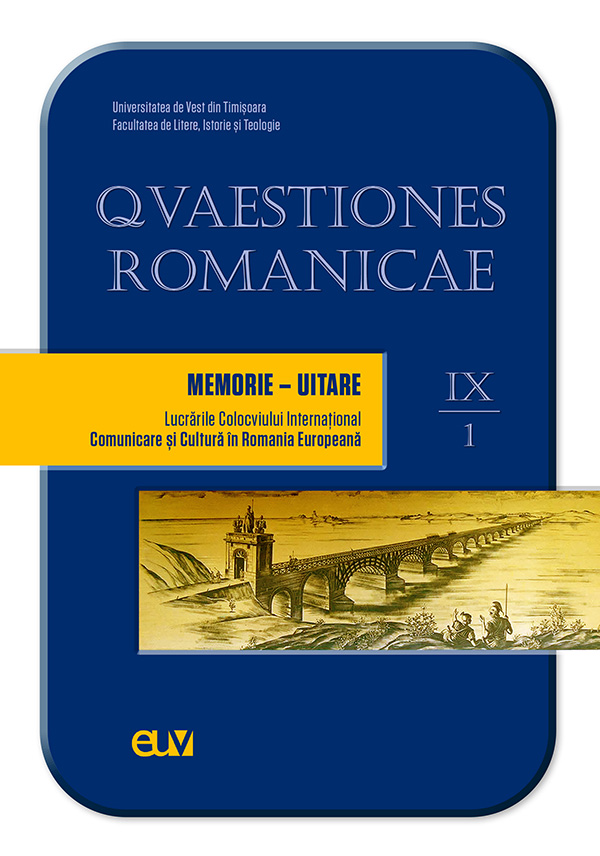Un caz particular de memorie lingvistică: discursul repetat
Abstract: (A Particular Case of the Linguistic Memory: the Repeated Discourse) The linguistic memory plays a fundamental role in the speech activity, in which the speaker activates, in a first instance, a certain language, in all its constitutive aspects. This paper addresses a particular case of the linguistic memory, namely the repeated discourse, as it was defined by Eugenio Coseriu. In the conception of the Romanian linguist, the repeated discourse contains everything that is repeated, in an identical or quasi-identical form, in the speech in a particular language, i.e. everything that is reproduced, not actually produced, by speakers, such as the phraseological units of a language (phrases, collocations, expressions, etc.), proverbs, sayings, fragments from literary or other works, etc. The concept of “the repeated discourse” – which has been correlated with that of “the intertextuality” – opposes, from Eugeniu Coșeriu’s perspective, the notion of “the free technique of the discourse”, which refers to the words of a language, as well as to the lexical and grammatical tools and procedures, etc. In this sense, the discourse or the linguistic act of a speaker represents a collage between the repeated discourse and the free technique of the discourse. The main purpose of this paper is to present the most important features of the repeated discourse. The paper also proposes an analysis of some examples of repeated discourse taken from the satire magazine Cațavencii, in which the modification of the repeated discourse becomes an important mechanism for creating the comic.
Keywords: repeated discourse, Eugenio Coseriu, intertextuality, linguistic memory, free technique of the discourse.
Rezumat: Memoria lingvistică joacă un rol fundamental în activitatea de a vorbi, în care vorbitorul activează, într-o primă instanță, o anumită limbă, în toate aspectele ei constitutive. Comunicarea de față abordează un caz particular de memorie lingvistică, și anume discursul repetat, așa cum a fost acesta definit de către Eugeniu Coșeriu. În concepția lingvistului român, discursul repetat conține tot ceea ce se repetă în vorbirea într-o limbă, într-o formă identică sau cvasiidentică, adică tot ceea ce este reprodus, nu produs efectiv, de către vorbitori, cum ar fi unitățile frazeologice ale unei limbi (locuțiuni, sintagme, expresii ș.c.), proverbele, zicătorile, fragmentele din opere literare sau de altă factură etc. Conceptul de „discurs repetat” – care a fost corelat cu acela de „intertextualitate” – se opune, din punctul de vedere al lui Eugeniu Coșeriu, noțiunii de „tehnică liberă a discursului”, care trimite la cuvintele unei limbi, precum și la instrumentele și procedeele lexicale și gramaticale etc. În acest sens, discursul sau actul lingvistic al unui vorbitor reprezintă un colaj între discursul repetat și tehnica liberă a discursului. Obiectivul principal al acestei lucrări este acela de a prezenta cele mai importante caracteristici ale discursului repetat. Lucrarea propune și o analiză a unor exemple de discurs repetat preluate din revista de satiră „Cațavencii”, în care modificarea discursului repetat devine un important mecanism de creare a comicului.
Cuvinte-cheie: discurs repetat, Eugeniu Coșeriu, intertextualitate, memorie lingvistică, tehnică liberă a discursului.
